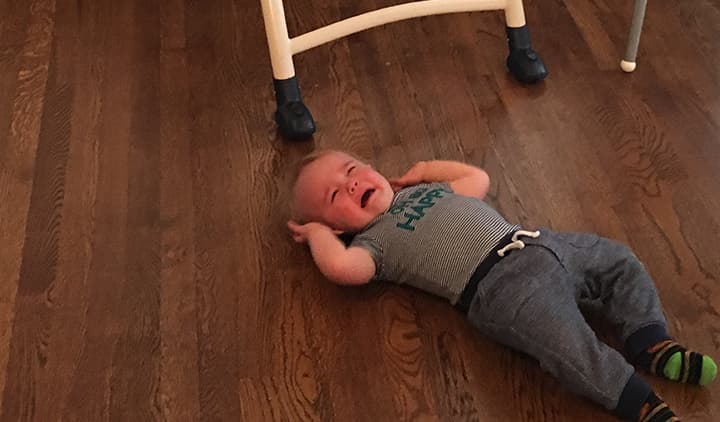
It happens to the best of us. You’re at the grocery store and your kid throws a tantrum because you won’t buy her a candy bar in the checkout lane. You’re at a restaurant and she won’t stop crawling under the table even after repeatedly being told not to. And who doesn’t struggle with bedtime whining?
At some point, all kids misbehave. Why do they do it? Simple. Because they want attention. Here are a few ways to help keep them from acting out.
Tell your child when she is being “good.”
Everyone likes to be told they are doing a good job, and especially kids. Praising your child when she behaves well or does something you like makes her feel good and helps her want to keep behaving well. Try noticing and praising your child for things like:
- Playing quietly, sharing and taking turns.
- Listening to instructions.
- Working hard.
- Saying “please” and “thank you.”
Play with your child every day.
Just a few minutes goes a long way. When you play, try not to teach, ask questions or accomplish something specific. Instead, show you are paying attention by describing what she is doing with the toys and praising good behaviors.
Use rewards to guide and teach
Rewards help kids complete chores and learn new things. Here's how to get started:
- Set clear and reasonable goals.
- Focus on the positive, like “getting ready on time.”
- Break down complicated tasks.
- Only work on one to three goals at a time.
- Use what motivates your child as a reward (video games, TV shows, extra play time, etc.).
- Make rewards small and give them often.
What a child finds rewarding may change from day to day.
Children typically like having routines. Prepare children for change. If a routine is going to be different, it is best to let the child know ahead of time. This also allows them to ask questions. Another way to help a child prepare is to use play to act out what the change will be like.
Remember, things get easier with practice.
Distractions can help avoid struggles. Public places like grocery stores or doctor’s office are boring for kids! Bring something for them to do, like coloring, reading or playing with a toy. Have your children take turns with toys while they are waiting.
Show behaviors you would like to see in your child. We expect children to share, say “please” and take a break to calm down, and we need to play by the same rules. By pointing out manners and good coping strategies when we use them, we teach our children that they are important. “Mommy is upset and needs to take some deep breaths to calm down. Let’s do it together!” Telling your kids when you feel sad, upset or happy helps them tell you about their feelings.
